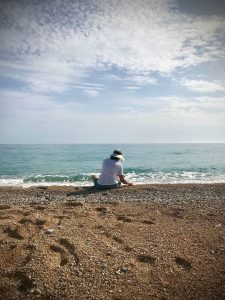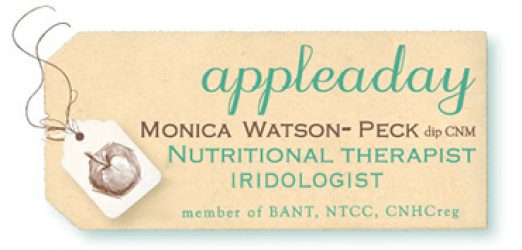I’d like to find another word for mindfulness. Not that it isn’t apt, on the contrary, being mindful in our lives can be life changing, mind blowing. But we’re hearing the word used so much these days, a little like the hackneyed terms ‘life changing and mind blowing’, that it can end up falling on deaf ears or meaning nothing at all to some people.

A male client on zoom yesterday rolled his eyes when I mentioned mindfulness. “No, that whacky stuff’s not for me,” he said.
There’s not much whacky about it; pretty straight forward in fact. Mindfulness is about tapping into something that was commonplace for our grandparents: taking each day, each moment, as it came; not having to juggle deadlines, childcare, finances, nights out and traffic holdups. These days there’s not a lot of Living each Moment, and therein lies a big part of our global chronic health crisis. The speed and stress of daily life is throwing us out of kilter, making many of us sick.
However, saying all that, I get what this client meant. Even though he hasn’t tried it, he said it sounded too vague, that ‘mindfulness’ didn’t explain enough of what it was about or how to do it. For him the name seemed to be a big part of why he hadn’t tried it. Hence my search for another word, a new title.
‘Being in the moment,’ or ‘living in the present’ may say more about what it is, but clients have told me they don’t think it’ll work for them, or, like this man, it sounds too ‘out there’. Someone once told me she was already being careful and didn’t need to do a course on it.
For others it doesn’t sound medical enough, doesn’t carry enough gravitas. I can’t help wondering if these people are still hanging out for the ‘one thing fixes all’ remedy. The trouble here is that we’re not living in a one-pill-fixes-all world. Our current chronic diseases are too complex for monotherapies.
The compelling science behind how mindfulness works – how it can kick in a relaxation response that lowers stress & anxiety, how it can lessen gut pain, even body inflammation, and that it’s something that can alter the microbiome and, amazingly, gene expression – all this information seems to only reach those interested in health or lifestyle therapies, and not the ones who might need it the most. It’s not on their radar until ill health has exhausted conventional medical routes and they somehow find a book or hear about cognitive therapy or an MBCT class (mindfulness based stress reduction), or they start working with a functional nutritionist, like me, who encourages it for helping with anxiety or IBS symptoms.
The thing about starting mindfulness is that we’re already doing it, this living in the present. Some of us are just not doing it as consciously as we should. And even though mindfulness is about developing a daily practice that will grow into something bigger and more sustained, into a higher awareness of our days, and of the many ‘present moments’, the key to starting it is to begin small, to keep it do-able.
I’m not a mindfulness expert or teacher, however the weekly mindfulness classes I went to about eight, maybe more?, years ago opened my eyes to the possibility of having a mindful practice in my daily life.
I remember during one of the early classes we were told to walk barefoot in the grass and listen carefully to the sounds around us, and then try doing it at home every day for any length of time we could manage. It was a lightbulb moment for me, realizing it could be something enjoyable, something I could easily do inbetween work. Also that I wouldn’t have to sit cross-legged for an hour cancelling all thoughts and finding a higher plane (which of course was my misinterpretation of meditation!)
Slowing down my daily pace in some way, at some point in the day, was key for me when I began (I’m speaking from the perspective of a busy person with a busy mind who likes to pack in lots).
In those early days, the more I read about mindfulness, the more I realized there was no rule about timing, no rule about what mindful practice I should do. Listening to the breath is often a starting point, and it can be the exclusive daily practice for many. I love it, all the more so since reading James Nestor’s book, Breath. However, I’ve met clients over the years who hate it, who say they get anxious listening to their breath, so it really is very individual.
An hour of sewing or gardening might be mindful time for one but torture for another. Examining pebbles on the beach for an hour might bore most people to tears except me. Sitting still to watch the day slowly shift from twilight to sunset might be your daily quiet time but only a holiday treat for another. Closing your eyes for ten or more minutes, listening to your breath might be a huge leap of faith.

When I talk about mindfulness to clients I suggest they try whatever they enjoy, something that will slow them down into the Now moment. Start their practice in small increments and take it from there, not beating themselves up if they need more time to get into a daily routine. This was the sustaining advice I was given when I was first introduced to mindfulness. After that, there’s a whole world of excellent books and qualfied teachers out there.
Now back to my first thought. Is there another word you can think of for Mindfulness, something that might reinject it with oomph, or explain it better? Something to describe this mindful awareness of our daily moments? If so, I’d really love to hear from you. x
